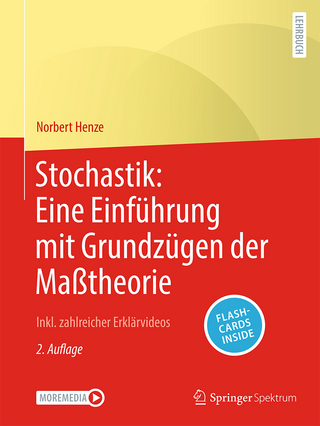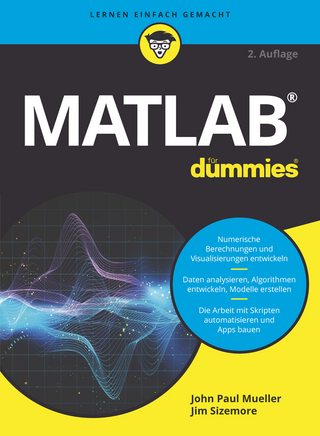Notes on Continuum Mechanics
This publication is aimed at students, teachers, and researchers of Continuum Mechanics and focused extensively on stating and developing Initial Boundary Value equations used to solve physical problems. With respect to notation, the tensorial, indicial and Voigt notations have been used indiscriminately.
The book is divided into twelve chapters with the following topics: Tensors, Continuum Kinematics, Stress, The Objectivity of Tensors, The Fundamental Equations of Continuum Mechanics, An Introduction to Constitutive Equations, Linear Elasticity, Hyperelasticity, Plasticity (small and large deformations), Thermoelasticity (small and large deformations), Damage Mechanics (small and large deformations), and An Introduction to Fluids. Moreover, the text is supplemented with over 280 figures, over 100 solved problems, and 130 references.
Preface.- Abbreviations.- Operators And Symbols.- Si-Units.- Introduction.- 1 Mechanics.- 2 What Is Continuum Mechanics.- 3 Scales Of Material Studies.- 4 The Initial Boundary Value Problem (Ibvp).- 1 Tensors.- 1.1 Introduction.- 1.2 Algebraic Operations With Vectors.- 1.3 Coordinate Systems.- 1.4 Indicial Notation.- 1.5 Algebraic Operations With Tensors.- 1.6 The Tensor-Valued Tensor Function.- 1.7 The Voigt Notation.- 1.8 Tensor Fields.- 1.9 Theorems Involving Integrals.- Appendix A: A Graphical Representation Of A Second-Order Tensor.- A.1 Projecting A Second-Order Tensor Onto A Particular Direction.- A.2 Graphical Representation Of An Arbitrary Second-Order Tensor.- A.3 The Tensor Ellipsoid.- A.4 Graphical Representation Of The Spherical And Deviatoric Parts.- 2 Continuum Kinematics.- 2.1 Introduction.- 2.2 The Continuous Medium.- 2.3 Description Of Motion.- 2.4 The Material Time Derivative.- 2.5 The Deformation Gradient.- 2.6 Finite Strain Tensors.- 2.7 Particular Cases Of Motion.- 2.8 Polar Decomposition Of F.- 2.9 Area And Volume Elements Deformation.- 2.10 Material And Control Domains.- 2.11 Transport Equations.- 2.12 Circulation And Vorticity.- 2.13 Motion Decomposition: Volumetric And Isochoric Motions.- 2.14 The Small Deformation Regime.- 2.15 Other Ways To Define Strain.- 3 Stress.- 3.1 Introduction.- 3.2 Forces.- 3.3 Stress Tensors.- 4 Objectivity Of Tensors.- 4.1 Introduction.- 4.2 The Objectivity Of Tensors.- 4.3 Tensor Rates.- 5 The Fundamental Equations Of Continuum Mechanics.- 5.1 Introduction.- 5.2 Density.- 5.3 Flux.- 5.4 The Reynolds Transport Theorem.- 5.5 Conservation Law.- 5.6 The Principle Of Conservation Of Mass. The Mass Continuity Equation.- 5.7 The Principle Of Conservation Of Linear Momentum. The Equations Of Motion.- 5.8 The Principle Of Conservation Of Angular Momentum. Symmetry Of The Cauchy Stress Tensor.- 5.9 The Principle Of Conservation Of Energy. The Energy Equation.-5.10 The Principle Of Irreversibility. Entropy Inequality.- 5.11 Fundamental Equations Of Continuum Mechanics.- 5.12 Flux Problems.- 5.13 Fluid Flow In Porous Media (Filtration).- 5.14 The Convection-Diffusion Equation.- 5.15 Initial Boundary Value Problem (Ibvp) And Computational Mechanics.- 6 Introduction To Constitutive Equations.- 6.1 Introduction.- 6.2 The Constitutive Principles.- 6.3 Characterization Of Constitutive Equations For Simple Thermoelastic Materials.- 6.4 Characterization Of The Constitutive Equations For A Thermoviscoelastic Material.- 6.5 Some Experimental Evidence.- 7 Linear Elasticity.- 7.1 Introduction.- 7.2 Initial Boundary Value Problem Of Linear Elasticity.- 7.3 Generalized Hooke’s Law.- 7.4 The Elasticity Tensor.- 7.5 Isotropic Materials.- 7.6 Strain Energy Density.- 7.7 The Constitutive Law For Orthotropic Material.- 7.8 Transversely Isotropic Materials.- 7.9 The Saint-Venant’s And Superposition Principles.- 7.10 Initial Stress/Strain.- 7.11 The Navier-Lamé Equations.- 7.12 Two-Dimensional Elasticity.- 7.13 The Unidimensional Approach.- 8 Hyperelasticity.- 8.1 Introduction.- 8.2 Constitutive Equations.- 8.3 Isotropic Hyperelastic Materials.- 8.4 Compressible Materials.- 8.5 Incompressible Materials.- 8.6 Examples Of Hyperelastic Models.- 8.7 Anisotropic Hyperelasticity.- 9 Plasticity.- 9.1 Introduction.- 9.2 The Yield Criterion.- 9.3 Plasticity Models In Small Deformation Regime (Uniaxial Cases).- 9.4 Plasticity In Small Deformation Regime (The Classical Plasticity Theory).- 9.5 Plastic Potential Theory.- 9.6 Plasticity In Large Deformation Regime.- 9.7 Large-Deformation Plasticity Based On The Multiplicative Decomposition Of The Deformation Gradient.- 10 Thermoelasticity.- 10.1 Thermodynamic Potentials.- 10.2 Thermomechanical Parameters.- 10.3 Linear Thermoelasticity.- 10.4 The Decoupled Thermo-Mechanical Problem In A Small Deformation Regime.- 10.5 The Classical Theory Of Thermoelasticity InFinite Strain (Large Deformation Regime).- 10.6 Thermoelasticity Based On The Multiplicative Decomposition Of The Deformation Gradient.- 10.7 Thermoplasticity In A Small Deformation Regime.- 11 Damage Mechanics.- 11.1 Introduction.- 11.2 The Isotropic Damage Model In A Small Deformation Regime.- 11.3 The Generalized Isotropic Damage Model.- 11.4 The Elastoplastic-Damage Model In A Small Deformation Regime.- 11.5 The Tensile-Compressive Plastic-Damage Model.- 11.6 Damage In A Large Deformation Regime.- 12 Introduction To Fluids.- 12.1 Introduction.- 12.2 Fluids At Rest And In Motion.- 12.3 Viscous And Non-Viscous Fluids.- 12.4 Laminar Turbulent Flow.- 12.5 Particular Cases.- 12.6 Newtonian Fluids.- 12.7 Stress, Dissipated And Recoverable Powers.- 12.8 The Fundamental Equations For Newtonian Fluids.- Bibliography.- Index.
| Reihe/Serie | Lecture Notes on Numerical Methods in Engineering and Sciences ; 4 |
|---|---|
| Zusatzinfo | XXI, 673 p. |
| Verlagsort | Dordrecht |
| Sprache | englisch |
| Maße | 155 x 235 mm |
| Themenwelt | Mathematik / Informatik ► Mathematik ► Wahrscheinlichkeit / Kombinatorik |
| Naturwissenschaften ► Physik / Astronomie ► Mechanik | |
| Technik ► Maschinenbau | |
| Schlagworte | Constitutive Equations • Continuum Mechanics • damage mechanics • Fundamental equations • Kinematics • linear elasticity • nonlinear solid mechanics • Plasticity • Tensor Analysis |
| ISBN-10 | 94-007-5985-1 / 9400759851 |
| ISBN-13 | 978-94-007-5985-5 / 9789400759855 |
| Zustand | Neuware |
| Haben Sie eine Frage zum Produkt? |
aus dem Bereich




